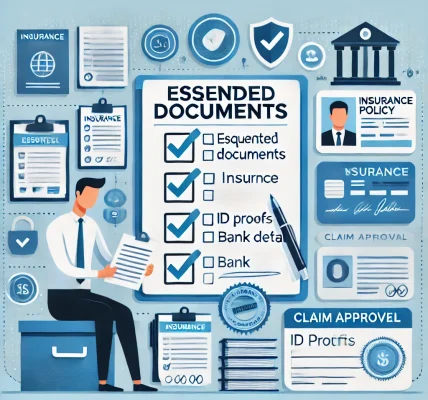Medical expenses can be overwhelming, and the last thing anyone wants is to face unnecessary delays in getting reimbursed by their insurance provider. A smooth and efficient claims process ensures that policyholders receive their entitled benefits without frustration. This guide walks you through the steps to avoid delays in medical bill reimbursements and maximize your insurance benefits.
Understanding Medical Insurance Claims
A medical insurance claim is a request sent to your insurer seeking reimbursement for healthcare expenses. The process can be categorized into two types:
- Cashless Claims: The insurer directly settles the bill with the hospital if treatment is received at a network hospital.
- Reimbursement Claims: The policyholder pays for medical expenses upfront and later submits a claim for reimbursement.
Common Reasons for Delays in Insurance Reimbursements
1. Incomplete or Incorrect Documentation
- Missing invoices, medical reports, or prescriptions can cause delays.
- Incorrectly filled forms may lead to claim rejection.
2. Not Adhering to Policy Terms
- Treatment received at a non-network hospital may not be covered under cashless benefits.
- Certain medical expenses might fall under exclusions, leading to claim denials.
3. Delayed Claim Submission
- Most insurers have strict timelines for submitting reimbursement claims, usually within 30–90 days of treatment.
4. Policyholder’s Misunderstanding of Coverage
- Not knowing what’s covered and what’s not can lead to incorrect claims.
- Some policies have co-payment clauses where the insurer only covers a percentage of the bill.
Step-by-Step Guide to Avoiding Claim Delays
Step 1: Understand Your Policy in Detail
- Read your insurance policy to understand what’s covered, the claim process, and any exclusions.
- Check for pre-authorization requirements for planned treatments.
Step 2: Choose a Network Hospital (For Cashless Claims)
- If opting for cashless treatment, ensure the hospital is within the insurer’s network.
- Inform the hospital’s insurance desk and get pre-approval if required.
Step 3: Keep Your Documents Organized
- Essential documents for a claim include:
- Hospital bills and payment receipts
- Doctor’s prescription and treatment summary
- Diagnostic test reports
- Discharge summary
- Insurance claim form (duly filled and signed)
Step 4: Submit Claims on Time
- Submit all required documents before the deadline specified by your insurer.
- If needed, check with your insurer about any additional paperwork.
Step 5: Follow Up Regularly
- Track your claim status online or via customer support.
- If there are delays, contact your insurance company to resolve any outstanding issues.
Tips to Maximize Your Insurance Reimbursement
- Maintain Copies of All Documents: Always keep a digital or physical copy of every submitted document for reference.
- Get Pre-authorization for Expensive Treatments: Many insurers require pre-approval for high-cost procedures.
- Review the Explanation of Benefits (EOB): If the claim is partially reimbursed or rejected, check the insurer’s reasoning and file an appeal if necessary.
- Communicate Clearly with Your Insurer: Respond promptly to any queries from the insurer regarding your claim.
What to Do If Your Claim is Delayed or Rejected?
- Identify the Reason: Insurers usually provide a reason for claim rejection or delay. Review the EOB statement to understand the issue.
- Provide Additional Information: If more details or documents are required, submit them as soon as possible.
- File an Appeal: If your claim is unfairly denied, you can appeal by submitting a formal request with supporting evidence.
- Seek Help from an Insurance Ombudsman: If the insurer does not resolve the issue, you may escalate the matter to an insurance ombudsman.
Final Thoughts
Avoiding delays in medical insurance reimbursements requires proactive steps, such as understanding policy coverage, organizing documents, and adhering to submission deadlines. By following these guidelines, policyholders can ensure a hassle-free claim experience and receive timely reimbursements without unnecessary hurdles. If issues arise, persistence and clear communication with the insurer can help resolve them effectively.


